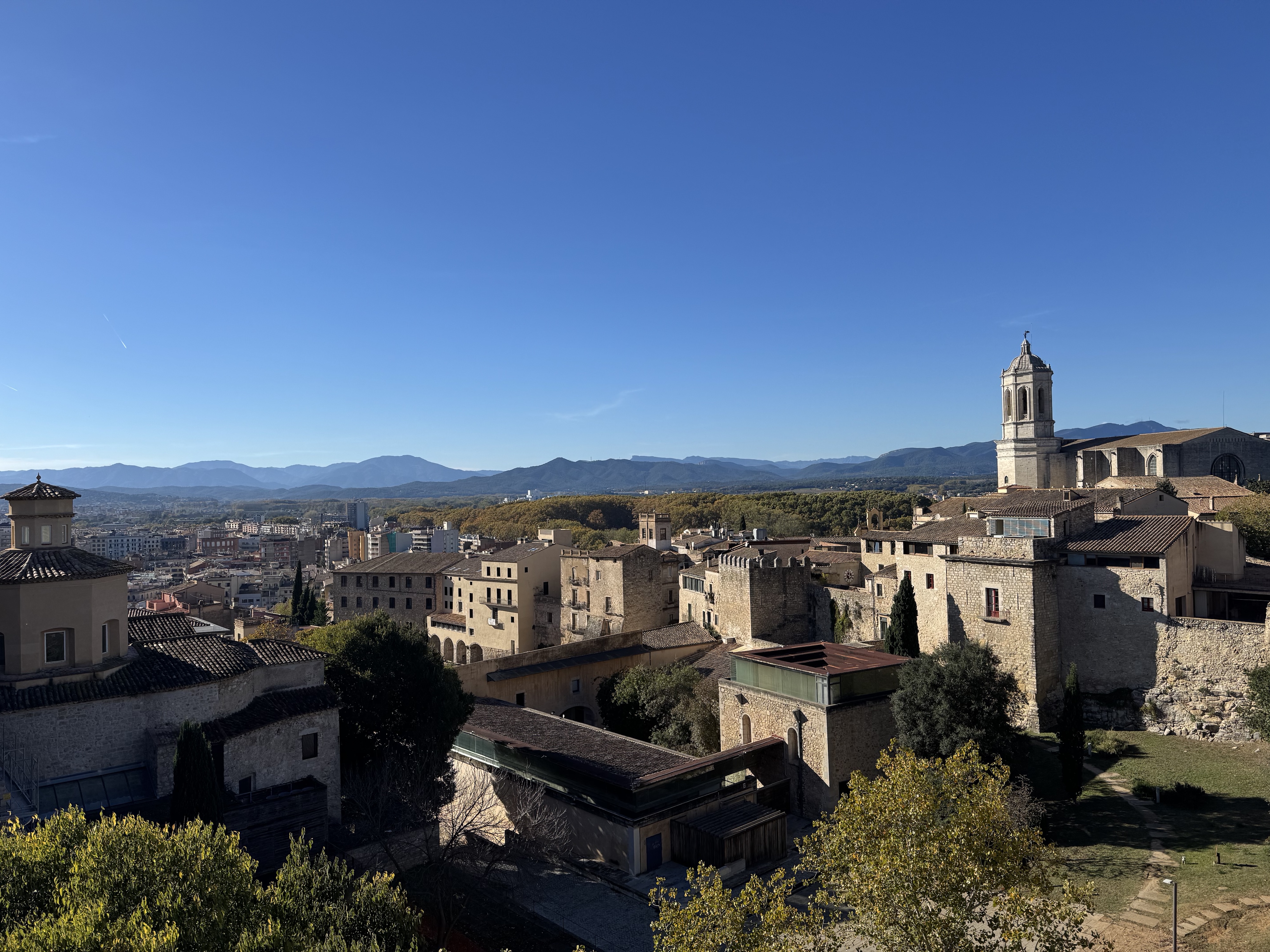When We Stop Pretending

I’ve spent the past week in Spain wandering through winding cobblestone streets, drinking a ton of café con leche, and learning about Catalonia’s long, complicated relationship with the rest of Spain. It turns out this is European history I never learned in school. The Catalan people have a deep and enduring sense of identity. They speak their own language, celebrate their own traditions, and, for generations, have carried a longing for independence that never quite arrives.
Even as an outsider, I can feel this tension between pride and powerlessness. They are part of a nation that will not let them go. And as I’ve been learning their story, I keep thinking about the power of grieving well.
In The Prophetic Imagination, Walter Brueggemann says it like this:
"...the real criticism begins in the capacity to grieve because that is the most visceral announcement that things are not right. Only in the empire are we pressed and urged and invited to pretend that things are all right—either in the dean’s office or in our marriage or in the hospital room. And as long as the empire can keep the pretense alive that things are all right, there will be no real grieving and no serious criticism."
Catalonia’s longing for autonomy is a kind of grief. It’s the public acknowledgment that something is not right, even when the empire insists everything is fine. But this isn’t just a political truth. It’s a deeply spiritual one.
We live in cultures, both religious and national, that are addicted to the illusion of strength. We reward denial, numbness, and distraction. “Keep calm and carry on,” we say, as if being calm were the same thing as healing. Churches often double down on this, offering triumphant worship and victorious slogans while quietly sweeping despair under the pews.
But grief is holy work. Brueggemann says, “Bringing hurt to public expression is an important first step in the dismantling criticism that permits a new reality, theological and social, to emerge.”
In other words, lament is not the end; it’s the beginning. When we grieve honestly, we expose the cracks in the empire’s illusion. We refuse to play along. We make space for God to create something new in the rubble of what was. That’s what makes grief dangerous. And why empires work so hard to suppress it.

It’s far safer to convince people that everything is fine, that the marriage can be saved by silence, that the church can be fixed with rebranding, that the nation just needs to “move on.” But every time we do that, we trade truth for comfort.
When we grieve, we tell the truth about what hurts. We honor what’s been lost. We stop pretending that death, injustice, or betrayal are just minor inconveniences to be prayed away.
I think that’s why Jesus wept. It wasn't out of weakness, but out of prophetic honesty. In those tears, the pretense of control collapses. And resurrection power can finally begin.
That’s what I’m learning here in Catalonia: sometimes the most courageous thing people can do is to name what’s not right. To sit in the unresolved longing. To let the wound speak. They've been practicing it for generations.
Because grief is not giving up. It’s the refusal to pretend.
And only when we stop pretending can God’s new world begin to emerge.
It's time for us to learn how to grieve well.
Photo by Lucas Gallone on Unsplash
(Disclaimer: As an Amazon Associate, I may earn commissions from qualifying purchases from Amazon at no cost to you. Your reading can help support my writing. Thanks!)
Sign up with your email and never miss a post!
We hate SPAM. We will never sell your information, for any reason.





